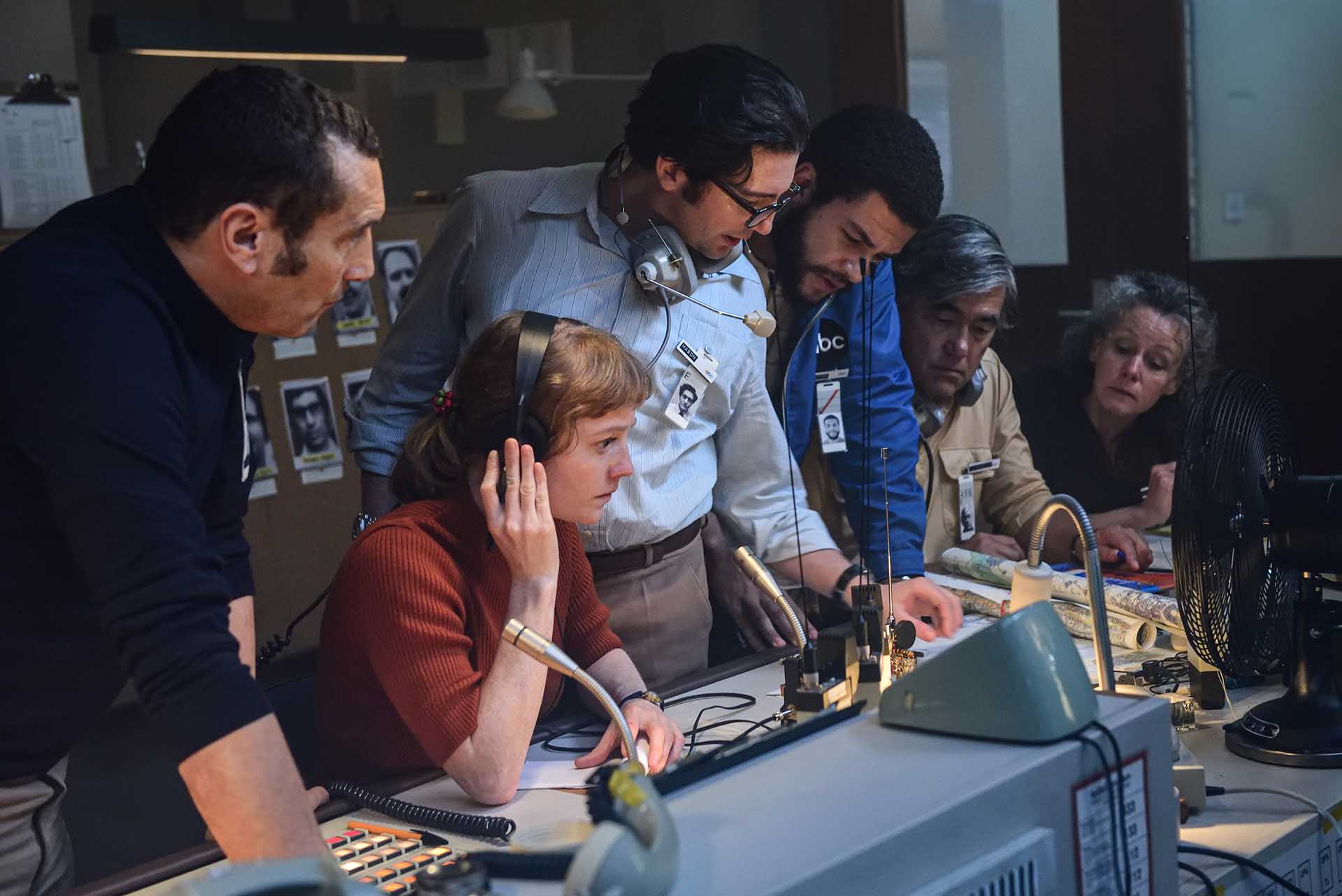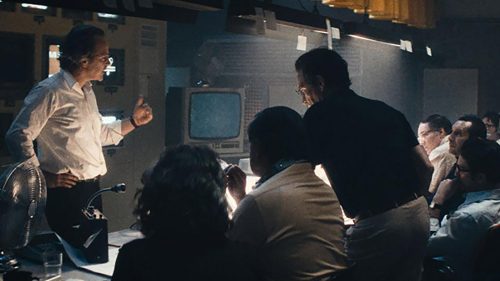
On the dawn of September 5, 1972, a commando of Palestinian terrorists from the Black September organization stormed the Olympic Village in Munich, killing two Israeli athletes immediately and taking nine others hostage, who would meet a similar fate after exhausting negotiations. The film by Tim Fehlbaum retraces the tragedy, focusing on a television broadcast that forever changed the coverage of such news events.
Born in Switzerland in 1982, Tim Fehlbaum has several short films to his credit, created shortly after graduating from the Academy of Film and Television in Munich in 2009. His apocalyptic thriller Hell, which he also wrote the screenplay for, was presented at the Locarno Film Festival in 2011 and won the Förderpreis Deutscher Film at the Munich Film Festival the same year.
Your previous films focused on post-apocalyptic and science fiction genres. What prompted the shift to a film about the 1972 Munich Olympics attack on the Israeli delegation?
What drew me to September 5 was its unique angle, focusing on media perspectives. In an era where live streaming and instant access to images shape how we perceive events, this perspective is especially relevant. Images have immense power, influencing opinions and mobilizing people. What happened in Munich in 1972 was the first act of terror covered live and in real-time, adding a new dimension to reporting and public perception. The live coverage brought unprecedented intensity to viewers. Our film aims to explore the complexities of reporting during such a crisis.
One intense moment is when the team must decide whether to broadcast anassassination live. How does this reflect the shift in handling such decisions compared to today’s exposure to violent content on social media?
Their lack of experience with such situations made this an interesting precedent as they were confronted with moral questions and forced to find solutions. We knew from our research that the crew discussed their options in real time, as the perpetrators threatened to kill hostages on camera. They finally decided to turn off the cameras and delay broadcasting to review footage from the remaining cameras before making any decisions.

Can you tell us more about Geoffrey Mason and how you got in contact with him?
We wanted to explore the Munich events from various perspectives, including those of the police, perpetrators, victims, and the media. During our research, we came across Geoffrey Mason, a junior producer at the time. He kindly spoke with us, and in our first conversation, he vividly recalled the events. When he described the marathon of reporting, it struck me as an interesting perspective. Why not tell the whole story through his eyes, showing the outside world only through their cameras and microphones? Mason connected us with Jimmy Scheffler, a runner who smuggled film material to the police, and Sean McManus, the son of host Jim McKay. These were the three key eyewitnesses we interviewed.
The language you’re using here differs from pure fiction, and the writing and making of the film lean toward a documentary style…
We structured the script around the broadcast material from that day and initially weren’t sure if we could use the original footage. Using it was crucial, as reenacting Jim McKay’s reporting would have been challenging. Thanks to the producers, ABC allowed us to use the footage, which we screened on set, blending reality with fiction.

On the dawn of September 5, 1972, a commando of Palestinian terrorists from the Black September organization stormed the Olympic Village in Munich, killing two Israeli athletes immediately and taking nine others hostage, who would meet a similar fate after exhausting negotiati...
Did ABC want to see the movie before you released it?
Yes, they wanted to read the script before granting approval. During the research, I visited sport control rooms in New York with John Magaro, the lead actor. We coincidentally met Sean McManus, son of Jim McKay whom I mentioned earlier, and it just so happened that he was the head of CBS Sports. I took the opportunity to ask for his blessing on our project involving his father. After reading the script, he agreed and granted us permission to use the footage. His support was instrumental when we approached ABC for the material.
In the film, the Olympic Games’ organizers decide to stop the games, but events continue despite the terrorist attack. Do you think this resonates with today’s experience?
Yes, I agree very much, and I’m actually glad you pointed this out because it was also, for me, one of the most important moments in the movie, where they grapple with the question, “Is this real life, or what is real life?” This idea wasn’t in the script initially, we only developed it after seeing the original footage. I think you would never come up with a line like that if it hadn’t really happened, we knew we had to use it and build a scene around that moment.

Can you share more about your collaborations in shaping the film, particularly with the cast, including Sean Penn and others?
The Olympics in Munich brought together people from all over the world, which we reflected in our casting by selecting actors from Germany, Europe, and the U.S. For the German cast, we chose Leonie Benesch, who starred in The Teachers’ Lounge, nominated for an Oscar last year. She was one of my first choices, and I was fortunate she was interested in the role. Sean Penn’s involvement was crucial, as attracting top U.S. talent is challenging for a German production. His reputation opened many doors. Beyond his name, the film was shaped by the creative collaboration with his partners, John Ira Palmer and John Wildermuth, as well as our producers, Thomas Wöbke and Philipp Trauer whose creative input was invaluable.
It’s a sensitive time to discuss Israel and Palestine. How do you feel about its release now, do you believe its focus on journalism will stand apart from the current political climate?
We were in the final weeks of post-production when October 7th happened, and of course, I’m deeply affected by those tragic events and what followed. However, our movie was written and shot before that occurred. I think we make it very clear that our film is about the media perspective and how to report on something like this. So, I’m confident that it will be understood that we’re not trying to make a comment on the broader political situation.